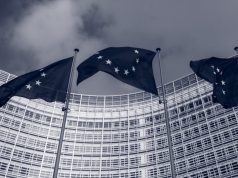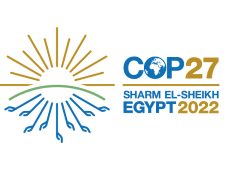INSIGHT by Peter Paul van de Wijs, Chief External Affairs Officer, GRI
EU efforts to achieve transparency on corporate impacts require mandatory reporting system with global reach
| The European Commission’s commitment to strengthen the Non-Financial Reporting Directive (NFRD), which requires large companies operating within the EU to publicly disclose sustainability information, is gathering pace.
This is welcome because, while the 2014 NFRD has advanced corporate transparency in Europe, application is patchy and the results inconsistent. If the EU is to fulfill the sustainable economy goals of the Green Deal, urgent changes are needed.
As part of their review, the Commission is considering developing European non-financial reporting standards, and tasking the European Financial Reporting Group (EFRAG) with leading this work. A consultation on the changes to EFRAG’s governance that this would necessitate has recently closed. As the world’s leading provider of sustainability reporting standards, the Global Reporting Initiative (GRI) strongly supports these efforts, as set out in our consultation response.
We firmly believe that without full disclosure on impacts on society and the environment, as well as the economy, it is not possible to assess the contributions of companies towards sustainable development, nor provide all stakeholders with a complete picture of corporate performance. That is why both financial and non-financial reporting need to be mandated and pursued with the same level of rigor. The proposed governance changes by EFRAG, with a two-pillar structure, would safeguard against one of the two being underweighted.
Globalized reporting system
needed to unlock the value of
non-financial information
Support global change beyond the EU’s borders
| The European Commission should not limit its ambitions to a reporting system that is only applicable to a European audience. Trade and business are of course global, with value chains stretching around the world. Therefore, a globalized reporting system is needed to unlock the value of non-financial information, facilitating the quality and comparability required for analysis and improvement. Such a system would have the added benefit of reducing the burden on reporting organizations.
Even if implementation of these standards is, at first, limited to the European market, this should not hinder the European Commission in taking a leadership role, by ensuring essential public oversight with appropriate global representation.
Build on existing standards
| Creating and maintaining standards is a time and resource intensive activity. Being able to leverage existing global standards, such as GRI’s, will accelerate implementation. The GRI Standards are the most widely used by companies in Europe – and further afield – to report their impacts on society and the environment. In research last month by KPMG, of 5,200 leading companies across major markets around the world, two thirds now apply the GRI Standards.
Warning against
‘cherry picking’ of standards
We warn against a ‘cherry picking’ approach – with individual standards from various standard setters used to prescribe a limited set of disclosures. Mandating standalone standards might improve comparability in the short term, but it will not achieve the credible and comprehensive reporting system as envisioned by the Commission. Nor does it provide the ability to quickly adopt new standards, or update existing ones, to address changing societal demands.
Deliver an independent standard setting model
| The acceptance of standards is premised on a rigorous, independent and transparent process for standard setting. GRI is concerned that duplicating the existing EFRAG governance model designed for financial standards will fall short of the required rigor and due process.
EFRAG’s proposal for a part-time expert group, supported by voluntary working groups, will lack the time, skills and capacity for developing and maintaining an ever-increasing set of high-quality standards, regardless of whether existing standards are taken as a starting point.
As GRI knows from more than 20 years’ experience, engaging with different stakeholder representatives and experts in the development of each topic standard is a huge undertaking. A neutral and accountable organization is required, which would manage and safeguard standard setting.
| We strongly recommend following a similar model to that taken by GRI, where we have an independent Global Sustainability Standards Board responsible for standard setting. Consideration needs to be given as to whether this proposed new division is a formal part of EFRAG or to have standard setting outsourced to another organization.
GRI’s standard setting governance model sets us apart, with clear synergies with the Commission’s objectives. It is independent, not for profit, embeds multi-stakeholder input, and is focused on the public interest. While political oversight is not something our model currently includes a mechanism for, we are open to discussing how it might be incorporated.
Collaborate and combine strengths
| The GRI Standards are truly global in nature and adoption, which aligns with the ambition of the Commission to develop a solution for use beyond Europe. The GRI Standards are already referenced or required in 67 countries, including by capital markets in 53 countries.
Offering EFRAG and the Commission GRI’s expertise presents a unique opportunity, whereby we can combine their political and regulatory leadership with our globally applicable strengths in sustainability reporting, in support of our complementary aims.
Building the European effort to develop robust non-financial reporting standards based on GRI’s technical experience will give the EU the head start needed to meet its objectives and timelines. We truly believe that such a collaboration will support our mutual aim of harnessing the power of transparency as a catalyst for achieving a sustainable future.
| about
Peter Paul van de Wijs has, since 2018, led GRI’s communications, policy and external relations functions. With over 20 years’ experience in communications and sustainability roles, Peter Paul has previously held executive positions at the LEGO Foundation and the World Business Council for Sustainable Development.
Global Reporting Initiative (GRI) is the independent, international organization that helps businesses and other organizations take responsibility for their impacts, by providing them with the global common language to report those impacts.
The GRI Standards are the world’s most widely used and comprehensive sustainability reporting standards, which are developed through a multi-stakeholder process and made available as a free public good.
Please also refer to a previous article on Sustainability Metrics (GRI).
| All opinions expressed are those of the author. investESG.eu is an independent and neutral platform dedicated to generating debate around ESG investing topics.









